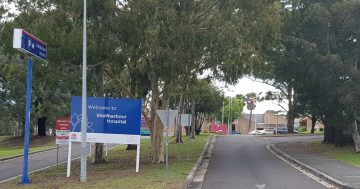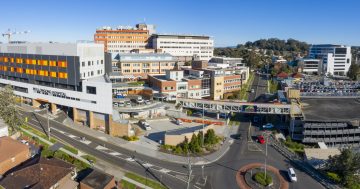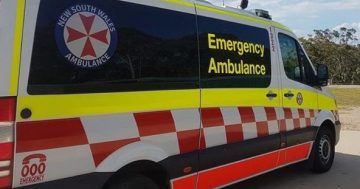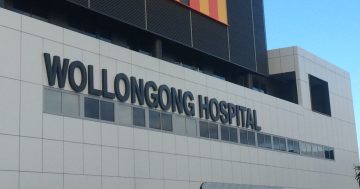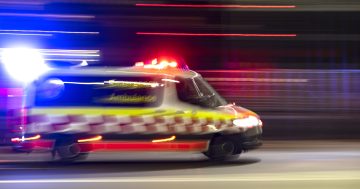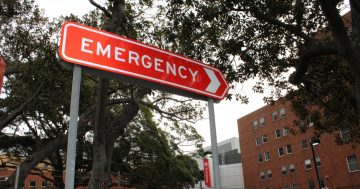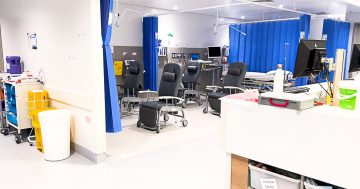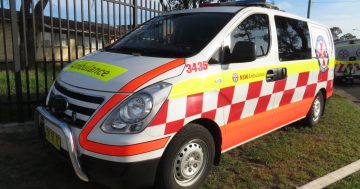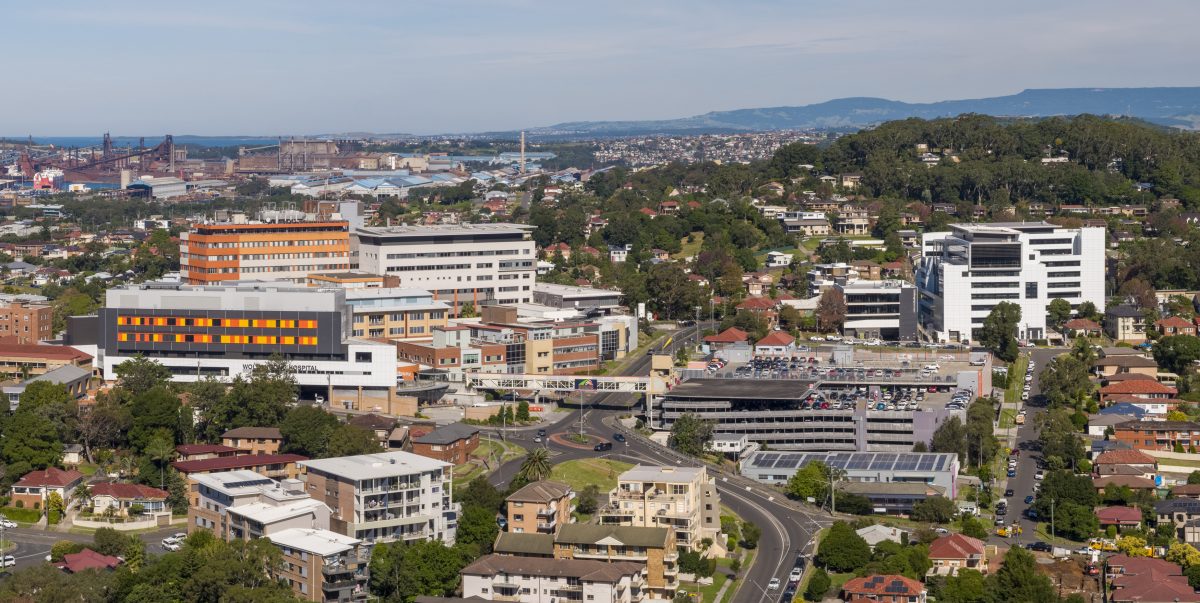
Wollongong Hospital patients are generally happier with their experiences than a year ago. Photo: Planning NSW.
Patients at two of the Illawarra Shoalhaven’s major hospitals have reported improved experiences, according to recently released data.
The Bureau of Health Information (BHI) Adult Admitted Patient Survey shows Illawarra patients are generally more positive about their hospital care than last year.
Wollongong and Shellharbour hospital patients reported the most improved experiences, while Shoalhaven Hospital received the most negative responses.
Across NSW, a representative sample of patients is invited to participate in each survey. A questionnaire of about 50 multiple-choice questions is sent to them one to three months after their hospital or clinic visit.
Illawarra Shoalhaven Local Health District (ISLHD) executive director clinical operations Margaret Martin said the survey was one of the ways the organisation heard from patients about their experiences of care.
“The results of the latest Adult Admitted Patient Survey show that health professionals in ISLHD continue to prioritise safe, high-quality and person-centred care,” she said.
“The strong results around compassion, respect and kindness also emphasise the district’s focus on the entire patient experience and commitment to working together with patients and their families and carers.
“The survey also highlights areas where a stronger focus is required, and the district remains committed to improving performance across our facilities.”
The survey asks patients to rate their hospital experience across categories including overall care, how health professionals worked together, the information given regarding conditions or treatment, and whether they were treated with respect and dignity.
Wollongong and Shellharbour hospitals recorded improvements in most categories, with Shellharbour patients giving the hospital and staff high marks across the board.
Shellharbour patients rated their experience above the state average in overall hospital care (74 per cent, up 3 per cent; Wollongong 62, up 5; NSW 68, up 2) and felt that health professionals explained things in an understandable way (84 per cent, up 5 per cent; Wollongong 72, up 2; NSW 79, unchanged).
Shoalhaven patients were slightly happier with their overall care than in the previous survey (64 per cent, up 2 per cent) but they were more dissatisfied across the board.
Their satisfaction with how health professionals explained things dropped 14 per cent to 64, along with how they felt about being involved in decisions about their care and treatment (57 per cent, down 9).
BHI chief executive Dr Diane Watson said the latest results reflected real improvements in the hospital care experiences of patients across the state and were a credit to the health professionals caring for them.
“Of the more than 20,000 NSW patients surveyed, 92 per cent said that overall, the care they received in NSW public hospitals in 2023 was either ‘very good’ or ‘good’,” Dr Watson said.
“Across the survey, there were improvements from the previous year for more than half of all questions, with patients more likely to provide high ratings for questions about health professionals, their involvement in decisions about their care, and the coordination and timeliness of their care.”
Ms Martin said ISLHD had implemented several initiatives and projects designed to improve the patient experience.
These included the district-wide rollout of the Teach-back program, which is a simple communication technique used by clinicians to explain things clearly and check patient, carer and family understanding, as well as a dedicated working group aimed at improving the completion of more consumer-friendly discharge summaries to patients and GPs.
At Shoalhaven Hospital, the GRACE program has been rolled out to nursing staff to help them perform comprehensive and individualised risk assessments when they first come into contact with the patient.
Nurses can then develop and implement individualised care plans, based on the assessments.
Perhaps unsurprisingly, the lowest scores were given to hospital food – asked whether the food was rated “very good”, only 19 per cent of Wollongong and Shellharbour patients and 11 per cent at Shoalhaven agreed, compared with the NSW average of 24 per cent.









